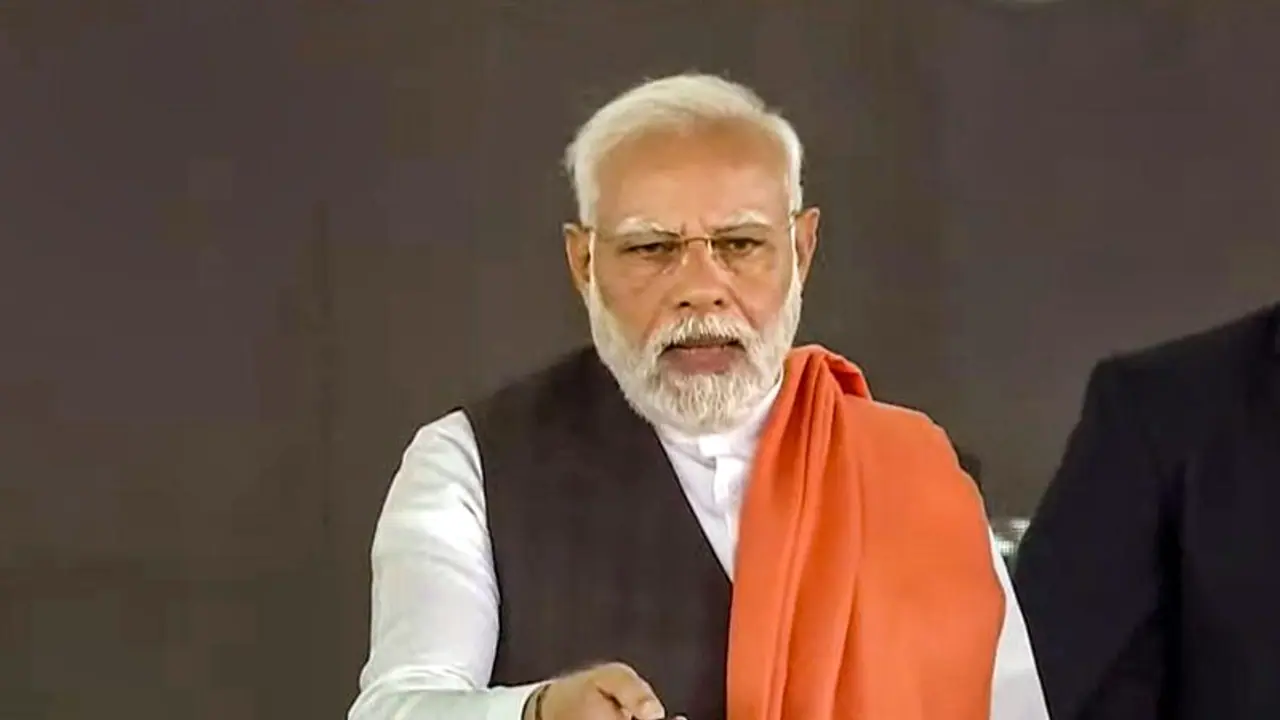In a weekly briefing, foreign ministry spokesperson Arindam Bagchi said: "Do note that this has not been screened in India... We think that this is a propaganda piece designed to push a particular discredited narrative. The bias, lack of objectivity and continuing colonial mindset is blatantly visible."
India on Thursday sharply reacted to BBC’s series on Prime Minister Narendra Modi, describing it as a propaganda piece designed to push a particular discredited narrative.

In a weekly briefing, foreign ministry spokesperson Arindam Bagchi said: "Do note that this has not been screened in India... We think that this is a propaganda piece designed to push a particular discredited narrative. The bias, lack of objectivity and continuing colonial mindset is blatantly visible."
Also Read: 'BJP, RSS created atmosphere of hatred in country': Rahul Gandhi at Pathankot rally
He further added: "If anything, this film or documentary is a reflection on the agency and individuals that are peddling this narrative again. It makes us wonder about the purpose of this exercise and the agenda behind it. Frankly, we don't wish to dignify such efforts."
The two-part series of the BBC documentary called 'India: The Modi Question' has also evoked sharp reactions from across the globe and particularly in the UK.
"A look at tensions between Indian PM Narendra Modi and India's Muslim minority, investigating claims about his role in the 2002 riots that left over a thousand dead," says the series descriptor.
The BBC claimed that the series examines how "Modi's premiership has been dogged by persistent allegations about the attitude of his government towards India's Muslim population'. The documentary also talks about 'a series of controversial policies' by Prime Minister Modi after his re-election in 2019, including 'the removal of Kashmir's special status guaranteed under Article 370' and 'a citizenship law that many said treated Muslims unfairly'.
As per reports, YouTube has removed the video from its platform.
Released on Tuesday, the series takes a close look at the story of Narendra Modi and tracks his journey to power. It has also made an in-depth study of his political career, including his tenure as Gujarat Chief Minister.
To note, a Supreme Court-appointed investigation had recently found no proof of any wrongdoing by Prime Minister Narendra Modi, who was Gujarat chief minister when the riots broke out.
In a report a decade after the riots, the Special Investigation Team had exonerated Prime Minister Modi citing 'no prosecutable evidence'. The Supreme Court had, in June last year, backed the clearance to Prime Minister Modi and said the case was 'devoid of merits' and was filed 'obviously, for ulterior design'.
Even British lawmakers have been critical of the BBC's decision to air the controversial documentary.
While accusing the BBC of biased reporting, UK House of Lords member Lord Rami Ranger wrote on Twitter: '@BBCNews You have caused a great deal of hurt to over a billion Indians It insults a democratically elected@PMOIndia Indian Police and the Indian judiciary. We condemn the riots and loss of life and also condemn your biased reporting.'
